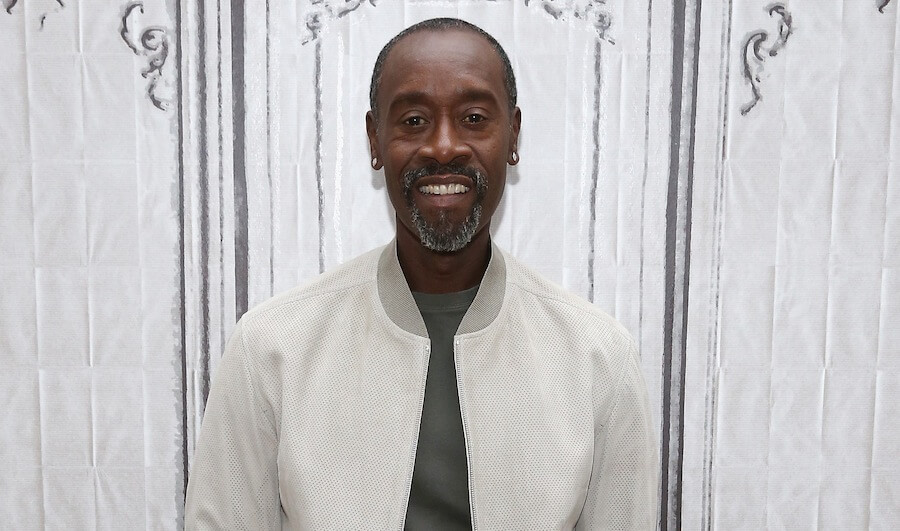First off: No, Don Cheadle doesn’t have a favorite Miles Davis record.
“It depends on the mood,” the actor admits. “There’s so many in there. It’s like different foods. They each have a different palate that satisfies.”
Cheadle, now 51, did know which part of the jazz legend’s life he wanted to film, and it may be surprising, especially considering his film — the new “Miles Ahead,” which the Oscar-nominated actor stars in, co-wrote and directed — is the first big movie about Davis’ life. Cheadle picked the late ’70s, specifically a few days during the five years he had quit music completely, holing up in his New York apartment, growing out his hair and acting even more erratic than usual. RELATED: Interview: Tom Hiddleston on “I Saw the Light” and not dropping his solo record anytime soon Normally artists — especially troubled geniuses like Davis — get sprawling, career-spanning movies. Cheadle knew he didn’t want that.
“He was relevant in music for 40 plus years. Each moment would have been given such short shrift,” Cheadle explains. Over the years Cheadle had been pitched movies about Davis’ life. “They felt like versions of Cliffs Notes of his life.” Besides Davis probably would have hated a standard, sleepy biopic. “I think he actually went on record about some movie he had seen done that way. He said, ‘Eh, I hate that s—. Don’t do that with me.’” RELATED: Geek Girl in Hollywood: A plea for sanity over “Batman v Superman” And so “Miles Ahead” is a movie, like Mike Leigh’s Gilbert and Sullivan film “Topsy-Turvy” or Maurice Pialat’s “Van Gogh,” that focuses on a slither of an artist’s life. But it’s also a wild, often free-form movie that’s more speculative fiction than a Wikipedia movie. Cheadle’s Davis winds up joining forces with a dodgy Rolling Stone journalist (Ewan McGregor) to steal back some tapes, featuring his first recorded music in years, back from a shady record label. Along the way Davis periodically flashes back to the 1950s and ’60s before snapping back to the present. “I wanted it to feel like we’re walking through a Miles Davis experience, rather than be something that was informational,” Cheadle admits. He recalls visiting a Davis museum exhibit a few years back. “For the five year period [of non-work], you walked into this dark space where the walls come in and it’s very strange and tactile. You feel like you’re inside Miles’ brain. I wanted that feeling for the movie.” Cheadle also knew he didn’t want to focus on the gruntwork of musicians, which can often sound, to laypeople, like artists speaking gobbledygook to each other.
“We could show people at a piano bench, working on chord progressions. But who cares?” Cheadle says. He said he used to play a game when shooting where he would go up to random people on the street and see how much they know about Davis. Invariably they knew he was a black guy, less knew he was a musician, even less that he played jazz. If they knew he played the trumpet, some would think he was the guy who puffed out his cheeks. (Sorry, Dizzy Gillespie.) “I wanted to make something that all those people who dropped off on the questionnaire could come to not knowing anything about Miles. They would enjoy the movie, then hopefully leave with the desire to know more,” Cheadle says. RELATED: Review: “Everybody Wants Some!!” is Richard Linklater’s latest bittersweet romp “Miles Ahead” leaves a lot of even basic 101 info out of the movie, and even interrupts big hits — like “So What,” off of his best known record, “Kind of Blue” — with deep cuts. Cheadle found he didn’t always have access to some of his subject’s biggest hits. “You’d come across a track and say, ‘I want to use that one.’ They’d say, ‘That’s not actually written by Miles,’” Cheadle says, laughing, about how Davis would erroneously claim credits from collaborators like Wayne Shorter. “Miles would change three or four notes in a tune then say it was his song. He was like, ‘Hey, I gave you the room to do that, so my name’s on it.’” Cheadle found that sometimes a more obscure song would be just as cinematic. He also didn’t stick to playing songs over the appropriate periods. “If I want to play something from ’87 in 1958, I want to be able to do that,” he says. RELATED: NYFF review: “Miles Ahead” is a crazy, goofy but vital portrait of Miles Davis Even though it’s partly made-up — though even the chase scene and shoot-out did, Cheadle points out, really happen to him in some form — “Miles Ahead” gets at deeper truths, not just about Davis but about artists. A key scene finds him trying to score drugs in the dorm room of a Columbia student. The kid busts out all his old favorite Davis records — “Sketches from Spain,” “Bitches Brew,” et al. — only to find their creator bristling at the idea that he be defined solely by past work. Cheadle can relate to the idea that art exists independent of their creators, even when he was just doing a job. “I was with my mom once and someone came up and commented on some movie I had done. I kind of poo-poo’d it. They had this look and walked away,” Cheadle recalls. “She was like, ‘Don’t ever do that. You basically called him an a—hole. You were in the movie and put it out there. Now it’s for him to enjoy if he enjoys it.’”
Don Cheadle on not giving Miles Davis a Wikipedia biopic

Getty Images
Follow Matt Prigge on Twitter @mattprigge


















